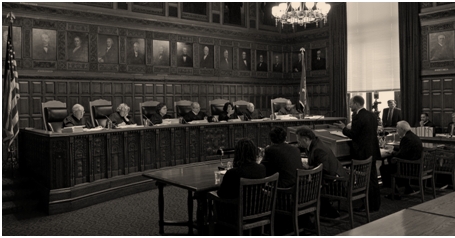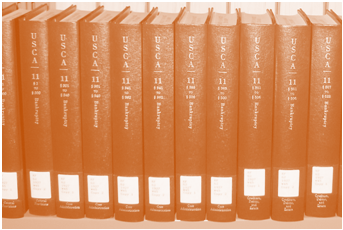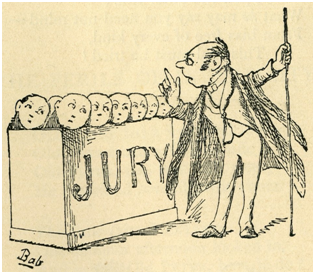When it comes to dealing with criminal offenses and criminal trials, most people expect to see the case going to a local county or circuit court. To many locals, the criminal defense process is just a repetitive drivel of making an arrest, going to the local district court, hiring a criminal defense lawyer and waiting for a verdict. However, not a lot of people know how the criminal trial procedure would go in a federal court.
Federal courts are not all different to most courts on the lower level. In fact, it can cover several of the crimes that are usually heard in county and state courts. However, there are certain features that set the federal court system apart from its counterparts in the lower and higher parts of the justice system hierarchy. A few important notes about federal courts and how they are distinct parts of the justice system are shown below.
Coverage of Power

One of the main features that set a federal court apart from the typical state court is jurisdiction. While state courts can cover a wide variety of cases and complaints, from simple misdemeanors like jaywalking and speeding to severe offenses like murder and battery, Federal courts are confined to offenses that are described in the United States Constitution and are specifically provided for by Congress. Federal courts, therefore, have a narrower coverage in terms of heard cases.
There are several key factors that determine if a crime can be heard in a federal court. Primarily, one of the involved parties has to be the United States as a whole, and the offense must be recognized as a violation of the Constitution or existing federal laws. For example, someone can be tried in federal court if he or she is involved in a patent fraud case or is involved in a bankruptcy issue. Some cases that can be tried in state courts can also be escalated to a federal court if the situation calls for it; examples include firearms possession, drug trafficking and human trafficking.
Conflicting Interpretations

It has been mentioned that federal courts can hear certain cases that can also be heard in state courts. In other unique cases, a litigant can file a case in federal court against state laws if he or she believes they violate the Constitution or certain provisions of it. This is an extension of the ‘violation of federal laws’ jurisdiction that federal courts have over various cases.
This can be tricky as technicalities in interpreting a certain state law vis-à-vis the federal law or the Constitution. For example, a complainant may file a case in federal court concerning state legislation that may be infringing on his or her constitutional rights. In turn, the opposing party can cite that the state law does not, in fact, infringe on the complainant’s rights and provides facts to support the claim. This becomes more difficult when the so-called Supremacy Clause, the clause that states the Constitution trumps other state laws, can be invoked to put the case to a close in favor of the complainant, something that the defense would aim to prevent.
On Double Jeopardy

A key component of a defendant’s rights is protection against double jeopardy, in which he or she may not be held on trial for the same offense more than once. This legislation is in place to ensure that impartiality is maintained, and that the defendant avoids suffering a cruel or unusual punishment. This interpretation, however, is limited to state courts.
Federal courts have every right to try a defendant for a crime that he or she is already facing in a state court if it also infringes or violates provisos in federal law. This usually works if the state has not managed to come down to a verdict concerning the defendant prior to the higher court filing its own case.
Federal courts may have a far narrower scope when it comes to various kinds of offenses and felonies, but that does not mean that they wield less power than the broader state courts. They interpret the Constitution and can exact far more severe punishment to those who have been convicted of violating the law of the land. Keep all these bits of information in mind when facing a possible federal case.

